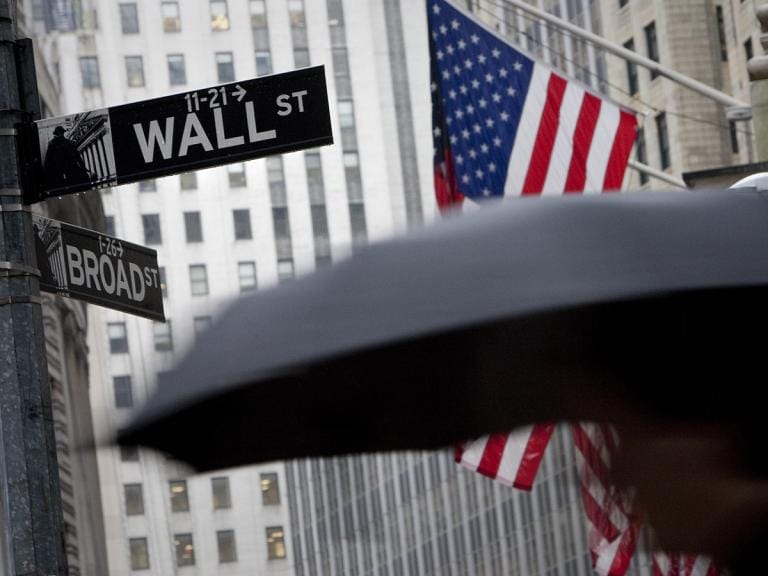Read our pick of the top stories to look out for in the week commencing 13 December, and view our key company earnings schedule.
In this edition, Michael Hewson looks ahead to an important week for central banks, with the US Federal Reserve, Bank of England and European Central Bank all set to make potentially market-moving policy decisions. He also offers analysis on Ocado as the online grocer prepares to announce its Q4 results.
OUR TOP 3 EVENTS:
Bank of England meeting – Thursday
The signs are that the Bank of England will wait until early next year before raising interest rates. Following the government’s latest work-from-home advice, consensus estimates point to a possible rate rise in February. Mind you, the bank made a mockery of predictions in November, when – having hinted that a rate hike was on the cards – it opted to keep the base rate unchanged at 0.1%. The bank was criticised for “bottling” the rate increase that it had led markets to expect. Further confusion followed when Governor Andrew Bailey said that the decision was a close call. This didn’t square with the bank’s report that its Monetary Policy Committee (MPC) voted by a majority of 7-2 to maintain the existing rate. The MPC made the case for seeing more data before raising the cost of borrowing, but one month on it hardly comes as a surprise that inflation has continued to rise. Employment data haven’t improved significantly, either.
The decision to hold rates in November now looks like a missed opportunity, as the emergence of the Omicron variant is likely to instil an even more cautious approach within the MPC. External MPC member Michael Saunders – who voted for a rate hike in November – said on 3 December that he wanted more information about the impact of the new variant before deciding how to vote. Although he makes a fair point, the underlying, long-term economic picture hasn’t changed. In fact, as Saunders acknowledged, delaying a rate hike any further runs the risk of exacerbating inflationary pressures down the line, now that workers are pushing for higher wages.
This week’s unemployment and inflation data – due Tuesday and Wednesday, respectively – are likely to increase pressure on the central bank to raise interest rates. But given the pandemic’s latest plot twist, the prospect of the bank doing so on Thursday seems remote. It is possible to raise rates without causing too much anxiety in markets, as New Zealand’s recent rate hike showed. But under Andrew Bailey’s leadership, and that of his predecessor Mark Carney, the Bank of England has repeatedly dodged the difficult decisions. In the near term, they are likely to continue to kick the can down the road.
US Federal Reserve meeting – Wednesday
After the US Federal Reserve announced that it would reduce its $120bn-a-month asset-purchase programme from November, it came to light that some Fed members had pushed for a more aggressive tapering. Minutes from the Fed’s November meeting showed that some members of the policy-setting Federal Open Market Committee (FOMC), anxious about rising prices and their effect on the US economy, wanted to cut the stimulus package by more than the agreed $15bn a month ($10bn in US treasuries and $5bn in mortgage-backed securities). Advocates for a faster wind-down now include previously dovish, pro-stimulus Fed members such as Mary Daly, President of the Federal Reserve Bank of San Francisco, who said last month that she was open to accelerating the pace of the taper. The Fed’s tone has become noticeably more hawkish in recent weeks. Jay Powell, reappointed in November as chair of the Fed for a second term, symbolised this shift in his testimony on Capitol Hill, saying it was time to retire the word “transitory” to describe inflation.
The FOMC seems keen to move faster on tapering to create room for interest rate rises next year, with markets already having priced in two rate hikes. Calls for rate rises could become more urgent if inflation remains close to the 30-year high it hit in October, with the Omicron variant potentially adding to upward pressure on prices. With the US economy in decent shape, it wouldn’t be a surprise if the Fed increased the taper to $30bn a month when it meets on Wednesday. The Fed isn’t afraid to take bold action at year-end – in December 2015, it raised interest rates for the first time in seven years.
Ocado Q4 results – Tuesday
After a solid 2020 when Ocado made some great deals, notably with Marks & Spencer, the Ocado share price is down approximately 30% this year. Although the company has boosted capacity, it has come at the expense of turning a profit. Revenue fell 10.6% to £517.5m in Q3, compared to a jump of 54% a year earlier when the pandemic boosted demand for home deliveries. However, customer orders continued to rise, with orders-per-week increasing 22%. Average basket size remained steady at £124.
The drop in Q3 revenue was partly due to a fire at Ocado’s Erith fulfilment centre in July, which resulted in the loss of storage capacity, the cancellation of around 300,000 customer orders, and a 19% decline in sales in the seven weeks after the fire. The total cost of the fire has been put at £35m, while Ocado has said that operating losses attributable to the blaze would come in at £10m. The negative impact was partly offset by increased capacity at Hatfield and Dordon, the reopening of Ocado’s Andover facility, and a new centre at Purfleet. Operating costs have risen as a result of higher wages, which look set to add another £5m to the cost base. This will inevitably hit full-year EBITDA.
Having posted £1.3bn in half-year revenue, Ocado remains on course to beat last year’s total revenue figure of £2.3bn, especially with the extra fulfilment centre capacity in Andover and Purfleet. The reopening of the Erith centre in November should also help. Ocado has said it remains optimistic that it can sustain revenue growth, as the addition of extra capacity at Bicester and a new facility in Luton are expected to boost delivery capacity to 700,000 orders a week. The company is also rumoured to be the subject of a potential bid, with suggestions that M&S might be considering buying the business.
MORE KEY EVENTS:
TUESDAY 14 DECEMBER
UK Unemployment (October)
If Bank of England governor Andrew Bailey was serious when he said in November that the decision on whether to raise interest rates this year rested on job market data, then unemployment figures for September gave him plenty to think about. Unemployment in the UK, as measured by the labour force survey and based on the International Labour Organisation’s (ILO) definition of unemployment, fell to 4.3% in the three months to September, down from 4.7% in the three months to June. The ILO measure of unemployment for September was just 3.9%. Meanwhile, job vacancies increased by 64,000 to a new record of 1.17m for the three months to October. The rolling three-month ILO unemployment figure is expected to fall to 4.2% for the period from August to October. Falling unemployment and record numbers of vacancies would usually signal a possible interest rate rise, but with new rules being introduced to curb the spread of Omicron, it seems that the Bank of England may hold off until February.
Purplebricks half-year results
When Purplebricks updated the market in November with news that a sharp slowdown in business activity was forcing it to issue a profits warning, the shares fell more than 30%. Management blamed challenging trading conditions in the first half of its financial year, saying new instructions were down 23% from the same period last year, as the expiry of various housing-market tax breaks acted as a brake on supply. Instructions for the six-month period are expected to have fallen to 22,000, down from more than 35,000 a year ago. The company’s cash position has also deteriorated, falling to £58m from £75.8m a year ago. Full-year EBITDA is also expected to decline.
Since then, the business has been in the headlines for all the wrong reasons. It is facing legal challenges from some of its agents over changes made by CEO Vic Darvey as part of the company’s restructuring. Its lettings business is also under scrutiny, following reports that some clients are facing possible fines after an IT error meant that tenants’ deposits weren’t registered with the government-approved deposit protection scheme, leaving landlords liable. Any more bad news in this week’s half-year update could see the Purplebricks share price fall even lower.
WEDNESDAY 15 DECEMBER
UK CPI (November)
The UK’s Consumer Prices Index, up 4.2% in the 12 months to October, is expected to have risen to 4.7% in November. And with the Retail Price Index at a 30-year high of more than 6%, the procrastination on the part of the Bank of England’s Monetary Policy Committee is embarrassing. With recent events around the Omicron variant creating uncertainty, it seems unlikely that another decent set of jobs data and another rise in headline CPI will tee us up for an interest rate rise on Thursday. Instead, it seems probable that the Bank of England will wait until February.
THURSDAY 16 DECEMBER
ECB rate meeting
Given the problems seen in Europe with the prevalence of the Delta variant, the last thing the continent needed was the emergence of the Omicron strain. With travel and other restrictions being imposed in the lead-up to Christmas, and governments talking about mandated vaccination programs, there is concern that any recovery is likely to be subdued against a backdrop of rapidly rising prices. Eurozone CPI hit a record high earlier this month, coming in at 4.9% for November, with core prices jumping to 2.6% from 2%. The sharp rise in prices is starting to become a huge credibility issue for the European Central Bank, with President Christine Lagarde insistent that there would be no rate hikes next year and that it was still believed that current inflation levels are transitory. That sort of thinking seems completely at odds to what is happening in supply chains in Spain, Italy and Germany, where factory gate prices are rising at over 20% on an annualised basis The ECB is still expected to end its pandemic emergency purchase programme (PEPP) at the end of March next year, while its Asset Purchase Programme (APP) of €20bn a month looks set to continue. As far as this week’s meeting is concerned, the ECB is unlikely to deliver anything in the way of a surprise, though we could see much louder noises from the hawks on the governing council. The ECB will still have to raise its inflation forecasts given the recent sharp jump in CPI, while it might have to lower its GDP forecasts for 2021.
FedEx Q2 results
Parcels and logistics companies are generally good bellwethers of an economy, and FedEx is no exception when it comes to the US economy. However, FedEx shares have been in decline since the record high set in May. The company has been a key cog in the US government’s vaccination programme. Shipping doses of the vaccine across the country has helped boost FedEx’s revenue during 2021. There was an expectation in Q1 that the business would be able to match its Q4 revenue of $22.6bn, up 30% on the previous year, with FedEx Express making 50% of that quarterly revenue number at $11.3bn, an increase of 32% from the previous year. At the same time, operating income rose to $737m. So far, so good. But like a lot of businesses, FedEx has had to cope with higher costs and staff shortages. In their Q1 numbers these concerns came home to roost. In September the company announced it was raising prices to help maintain its margins and offset higher costs. This was subsequently followed by a profits warning, when the company announced its Q1 numbers a few days later. In Q1 profits fell back to $4.37 a share, missing expectations of $5 a share, although revenue came in above expectations at $22bn. The company also cut its full-year outlook, even as it predicted that revenue would surpass $90bn this year, sending the shares sharply lower. The stock eventually hit a one-year low in October. A rise in costs of $800m from a year ago is the key pressure point with worker shortages, and having to pay staff extra for weekend shifts appears to be part and parcel of the pressure on margins. This week’s Q2 numbers are expected to see profits come in at $4.24 a share.
FRIDAY 17 DECEMBER
Darden Restaurants Q2 results
Like most popular restaurant chains, Darden Restaurants in the US, which owns the Olive Garden and Longhorn brands, has been able to offset the negative effect of lockdowns by offering a takeaway service to clients. To cut costs and reduce its debt load, the company embarked on a $35m restructuring program as a result of the lower footfall that is expected to be the norm going forward. The restaurant chain also managed to shrug off the effects of higher costs in its recent Q1 numbers, reporting profits of $1.76 a share, and posting sales of $2.31bn, a huge jump from $1.53bn a year ago. Darden says it expects to see higher full-year profits of $7.45 a share, while full-year sales are expected to come in at $9.5bn, which is a lot of breadsticks and pasta. Profits for Q2 are expected to come in at $1.46 a share.
Index dividend schedule
Dividend payments from an index's constituent shares can affect your trading account. View this week's index dividend schedule.
Selected company results
| Monday 13 December | Results |
| Backblaze (US) | Q3 |
| Tuesday 14 December | Results |
| Aspen Group (US) | Q2 |
| Begbies Traynor Group (UK) | Half-year |
| Chemring Group (UK) | Full-year |
| Cleanspark (US) | Q4 |
| Ocado (UK) | Q4 |
| Ocean Power Technologies (US) | Q2 |
| Pepco Group (UK) | Full-year |
| Purplebricks Group (UK) | Half-year |
| RWS Holdings (UK) | Full-year |
| Skillsoft (US) | Q3 |
| Wednesday 15 December | Results |
| ABM Industries (US) | Q4 |
| Avon Protection (UK) | Full-year |
| Blue Bird (US) | Q4 |
| Currys (UK) | Half-year |
| HEICO (US) | Q4 |
| Hollywood Bowl Group (UK) | Full-year |
| IronNet (US) | Q3 |
| Lennar (US) | Q4 |
| Nordson (US) | Q4 |
| Pressure Technologies (UK) | Full-year |
| REV Group (US) | Q4 |
| Toro (US) | Q4 |
| Thursday 16 December | Results |
| cbdMD (US) | Q4 |
| Expensify (US) | Q3 |
| FedEx (US) | Q2 |
| FRP Advisory Group (UK) | Half-year |
| Go-Ahead Group (UK) | Full-year |
| Quanex Building Products (US) | Q4 |
| Steelcase (US) | Q3 |
| Worthington Industries (US) | Q2 |
| Friday 17 December | Results |
| Darden Restaurants (US) | Q2 |
Company announcements are subject to change. All the events listed above were correct at the time of writing.





